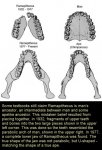With that out of the way, let's discuss this
a little more carefully.
First, I'm not sure I understand why you'd say special relativity isn't a theory (at least here, though you seem to say that it is elsewhere). But that aside, those two postulates were not determined by the available observations. By that, I just mean that the available observations didn't make the postulates inevitable (indeed, how could they?). Before the experiments that are taken to confirm relativity occurred, it was just as likely (and was in fact proposed) that the MM aparatus was faulty. Or that the properties of the aethyr were not sufficiently understood. Or even that the data was falsified, or etc.
Einstein revived Galileo's proposition of relative inertial frames, and mixed in the notion that light in a vaccuum has an absolute velocity. From there, as you note, he deduced what might be observed. But just what role can deduction, which is entirely independent of observation, play in science? If it is to play a role, it seems perforce that philosophy plays a role in science. Since my initial point was simply that science is much more difficult to distinguish from other areas than most people believe, this is a relevant point.
Further, if all it takes for something to be science is to be "based on" observations, then of course special relativity was science. But then, so is a lot of stuff that I bet you wouldn't want to see counted as science. For instance, was Locke's philosophy of mind, "based on" the notion of the mind as Tabula Rasa at birth which was in turn "based on" the best available observations science? I suspect you'd probably think not. But how is that case distinguishable from relativity in principle? If you're going to try to define science, you'll have to do better than this.




